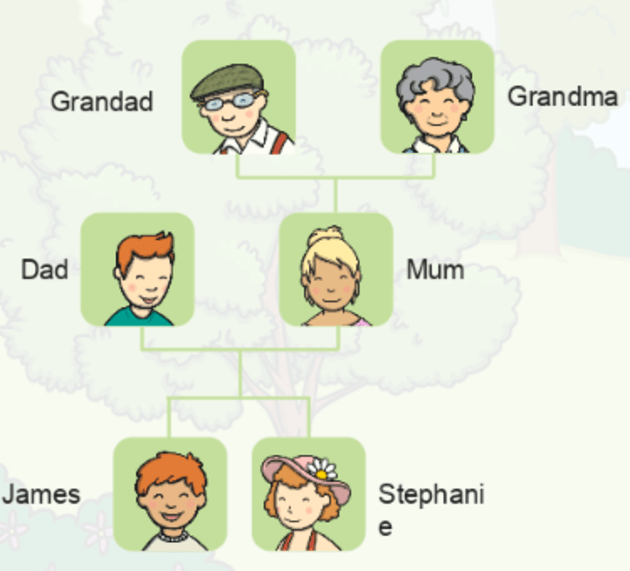
Imagine you’re a family historian, eager to document your ancestors’ tales. The idea of tackling this project alone feels daunting, and you’re considering the prospect of teaming up with others to write your family history.
Writing, especially solo, can be a formidable task. If you’re like many who haven’t ventured into writing since their school days, the prospect can feel especially intimidating. And when the project is as significant as a family history book intended to spark interest in non-genealogist relatives, the pressure can feel immense.
The silver lining? Family history writing doesn’t have to be a solitary endeavor. Collaborating with others who share your passion for preserving the past can transform this task into an enriching team effort.
Collaborative family history writing is a unique journey for everyone, and there’s no one-size-fits-all method. You could invite family members to contribute stories, focus on certain ancestors together, or co-author the entire work with one or more people.
When I worked on “The First Seventy Years,” celebrating my mother’s family, I encouraged her closest relatives to share their stories. These contributions, which I included in their entirety, added layers of depth and richness that my solitary writing couldn’t have achieved alone.
But is team writing the right choice for your family history project? Let’s delve into why you might consider co-authoring, the advantages of such a collaboration, and four potential challenges you might face.
Is Group Writing Suitable for Your Family History Project? Family history is an intricate hobby, presenting numerous opportunities for collaborative exploration. But how do you decide when to embrace these opportunities? While the decision often boils down to a gut feeling, there are four common reasons why historians might opt for a joint writing venture:
- To Play to Each Other’s Strengths: The journey of documenting family history involves wearing multiple hats – researcher, writer, editor, etc. Naturally, we have varying strengths and weaknesses. Collaborating with others allows each person to contribute their best skills while compensating for areas where they may not excel.
- Shared Workload for Big Projects: If you’re aiming to produce a detailed family history, especially for events like family reunions, the task can be overwhelming. Sharing the workload among multiple collaborators can make such large-scale projects more manageable and efficient.
- Accountability and Momentum: Keeping the motivation high throughout the project can be challenging. Working in a team provides accountability and helps maintain momentum, ensuring steady progress towards completion.
- Learning from Experienced Collaborators: For those new to family history writing, teaming up with more experienced relatives or historians can be an invaluable learning experience, offering guidance and insights into the writing process.
Benefits of Collaborative Family History Writing Collaborating on your family history writing project offers several key benefits:
- Diverse Perspectives: Collaboration brings different viewpoints and interpretations, enriching the narrative with depth and complexity.
- Built-in Accountability: Team writing fosters motivation and commitment, helping to keep the project on track and minimize perfectionism.
- Pooling Resources: Collaborative efforts combine individual skills, resources, and knowledge, reducing the workload for each person and enhancing the overall quality of the work.
- Preservation of Family History: Working together ensures a comprehensive documentation of family history, preserving diverse viewpoints and stories for future generations.
Challenges to Consider in Collaborative Writing While there are many advantages, collaborative writing also presents potential challenges:
- Managing Timeframes: Coordinating schedules and managing time effectively can be tricky, especially with multiple contributors. Flexible planning and regular progress check-ins are essential.
- Navigating Disagreements: Different opinions and interpretations are inevitable in group projects. Establishing a fact-checking protocol and a structure for handling conflicts is crucial.
- Dealing with Bottlenecks: Delays can occur when tasks depend on the completion of preceding ones. Effective distribution of work and open communication can help mitigate these bottlenecks.
- Handling Dropouts: There’s always a risk of collaborators leaving the project. Discussing and planning for such scenarios early on can help the team adapt and continue the work effectively.
Embracing the Group Project Approach Turning your family history writing into a group project could be the key to unlocking a more in-depth and diverse narrative. If you’re apprehensive about starting or maintaining momentum, consider the collaborative approach. It allows you to leverage your strengths, engage in creative brainstorming, and enjoy the support and motivation that comes from working within a team.
Writing can indeed be challenging, but getting started is often the most difficult step. If you’re looking for guidance to ease you into the writing process, check out Ancestral Stories, a program designed for family historians. This self-paced course can help you transition from research to storytelling, even if you’re new to writing. Explore more and enroll today to begin crafting your family history with confidence and skill.